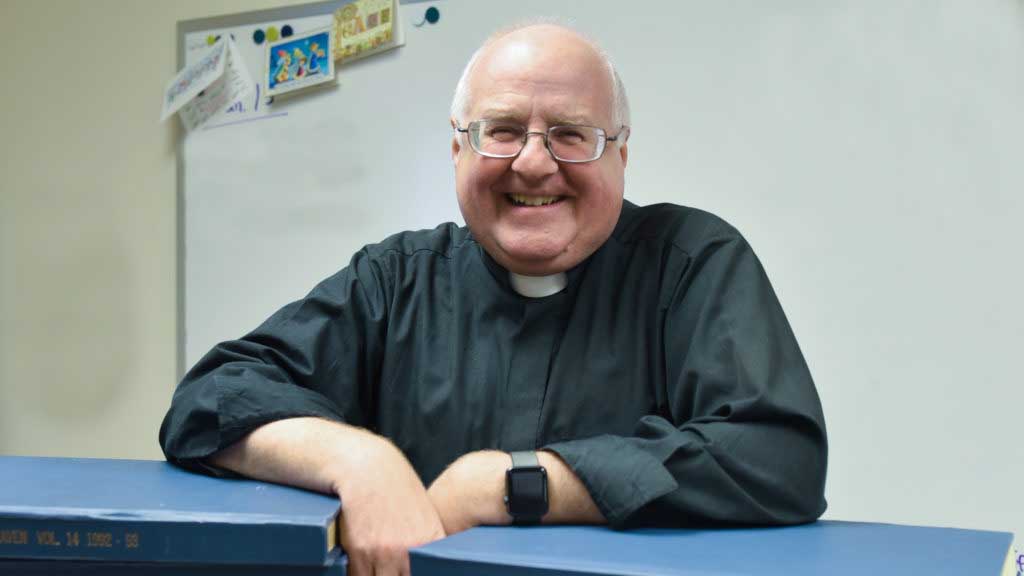
by Father Mark Goldasich
Age quod agis.
I have no desire — ever — to get a tattoo, which someone once described as “a permanent sign of temporary insanity.” That being said, I can still speculate on what I’d want inked on my body. It would undoubtedly be those three Latin words above: Age quod agis, which means “Do what you’re doing.”
That sentence might seem silly at first, but another way to say it is: “Focus on the task at hand.” In this multitasking, distracting world that we live in, focusing is rapidly becoming a lost art.
I can’t tell you the number of times I’ve come into a room for something, only to stand there helplessly as I try to recall the purpose of my mission. In the space of a few footsteps, I’d been derailed by something else I saw.
Or how many times have you been introduced to someone and forgotten their name a nanosecond later? Have you ever been talking on your cellphone while at the same time looking around for where you put it down? Have you ever taken your prescription medications and then, five minutes later, wondered if you’d taken them?
Have you ever read something and then had to reread it because your mind was somewhere else? Have you ever read something and then had to reread it because your mind was somewhere else? (Sorry, I couldn’t resist.)
Yes, focusing is a problem today. But honestly, it’s nothing new, as this little story illustrates:
While journeying on horseback one day, St. Benedict met a peasant walking along the road.
“You’ve got an easy job,” said the peasant. “Why don’t I become a man of prayer? Then, I too would be traveling on horseback.”
“You think prayer is easy?” asked the saint. “If you can say one Our Father without any distraction, you can have this horse.”
“Deal!” said the surprised peasant.
Closing his eyes and folding his hands, he began to pray aloud: “Our Father, who art in heaven, hallowed be thy name; thy kingdom come . . .”
Suddenly, the peasant stopped, looked up and asked St. Benedict, “Say, do I get the saddle and bridle, too?” (Story found in Anthony P. Castle’s “Quotes & Anecdotes: An Anthology for Preachers & Teachers.”)
Sadly, no horse for that peasant! Even in prayer, it’s hard to focus, isn’t it? One Sunday, just for fun, I began my homily with this question: “Where was the first reading today from?” I can’t tell you how many faces in the congregation had that deer-in-the-headlights look. Their minds were miles away during the reading.
I’ve learned a lot about what it means to focus since working from home. Surprisingly, The Leaven gets finished much quicker for some reason. My staff would like you to believe that when we were working in person, it was my procrastination and disrupting the work of others by dropping in their office to chat that were the major distractions. (I prefer to see my behavior instead as “pondering” and “building camaraderie.”) Nonetheless, I must admit that my working from home means the paper is completed much earlier.
In short, maybe all of us can practice “doing what we’re doing” this week. When driving, drive. When praying, pray. When conversing, converse. When working, work.
Because that’s easier said than done, I’ve found this foolproof way to focus: It’s . . .
Hey, is that a cobweb up there in the corner?


